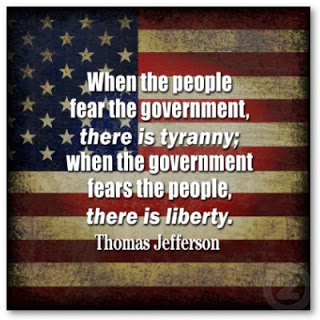Dr. Tibor Machan
Daily Bell
Here is some good news: The march of liberty has so far proven to be generally unstoppable. Over the span of human history there have been periods during which hardly any sign of respect for human liberty had been in evidence. In other eras the globe has seen advances toward human liberty by leaps and bounds. That is to say, in some periods clear evidence can be pointed to showing that some men and women – such as kings, queens, czars, Pharaohs, Caesars, dictators, tyrants, politburos, political bodies of all types and uncivil majorities – have began to recede in their efforts to suppress other men and women, to treat them as their tools, instruments, subjects, and such. In other periods the opposite trend has been in evidence.
Still, overall the trend has been toward the spread of liberty. More and more of us have become masters of our own lives, fewer and fewer are in the position of ruling others. Even when in some areas, such as national economic policy, liberty has taken a beating, there are others where fewer impositions and restrictions are made into public policy – for example, the basic rights of members of minorities, women, gays, natives, the press, etc., are being recognized and provided legal protection alongside onerous economic policies. And globally, while the former beacon of human liberty, the United States of America – itself, sadly, never fully committed – is now rather halting in its defense of human freedom, other communities – for instance, the former Soviet and other colonies – are slowly but surely shedding the idea and practice that would have some people run roughshod over others, especially as a matter of official public policy.
Now this is not all that surprising. In any area of their lives people can do better or worse or just linger in some kind of mediocre limbo. And this is so when it comes to political matters. Sometimes, in fact, there can be improvement in one sphere of human life and a decline in others – for instance, while economic liberty can widen, it is possible for personal or cultural fulfilment to be on hold for many. Not everything is moving in the same direction at once and with the same speed. (One can easily confirm this by just checking one’s own life and noticing that there can be advances in one area while another can be faltering – one’s career can even soar while one’s health might not improve.)
All this is enhanced by the sheer fact that the surrounding natural world in which men and women may struggle to strive, to flourish, isn’t uniformly supportive – storms, floods, tsunamis, earthquakes, hurricanes, diseases and other adversities not of our making are often complicit in making life not so triumphant for us all. Fortunately, here, if men and women are substantially free to live their lives without being oppressed by others, they tend to do better at figuring out how to deal with these non-human adversities – the sciences, philosophy, technology, education, and other features of life tend to get improved treatment when we are free, less time needs to be spent on fending off the intrusive ones among us.
So, as one contemplates developments in one’s immediate or the broader human sphere, it is a good idea to keep in mind how even without a inevitable trend toward a better and better existence, in the long run human beings are experiencing a better and better life (just as the late Julian Simon and his students (e.g., Matt Ridley) have been stressing in the midst of the endless doom-sayings of the likes of Paul Ehrlich and Paul Krugman).
RELATED ARTICLE:
10 New Year’s Re-Solutions for Non-violent Rebellion


Be the first to comment on "The Struggle – the Long Arc of Advances in Human Liberty"